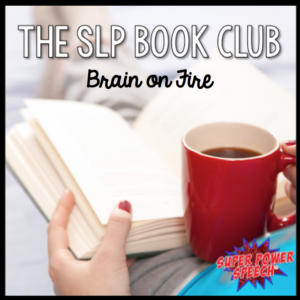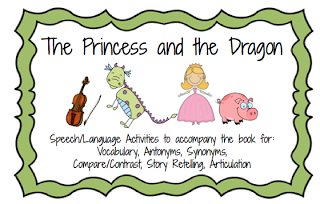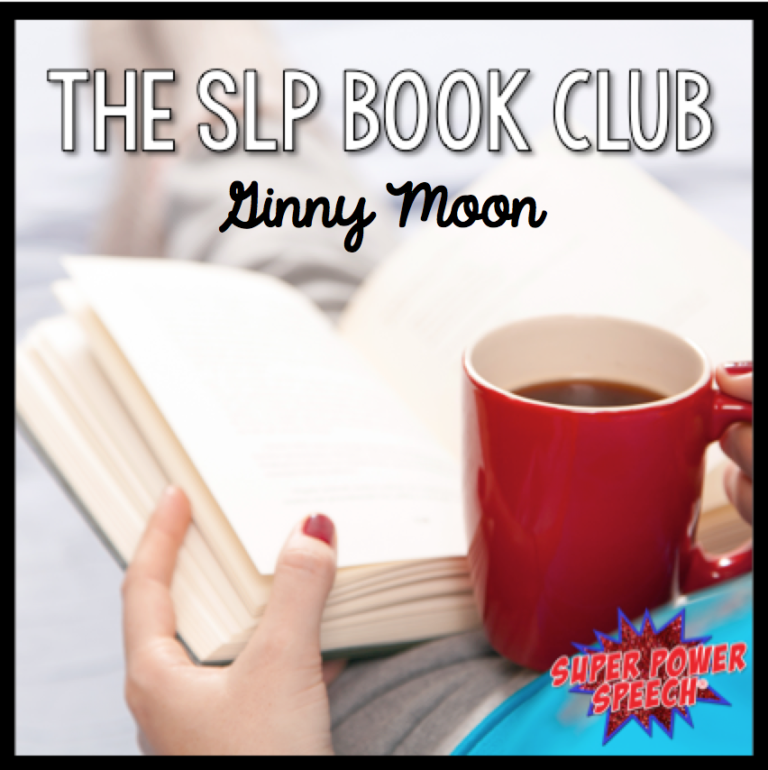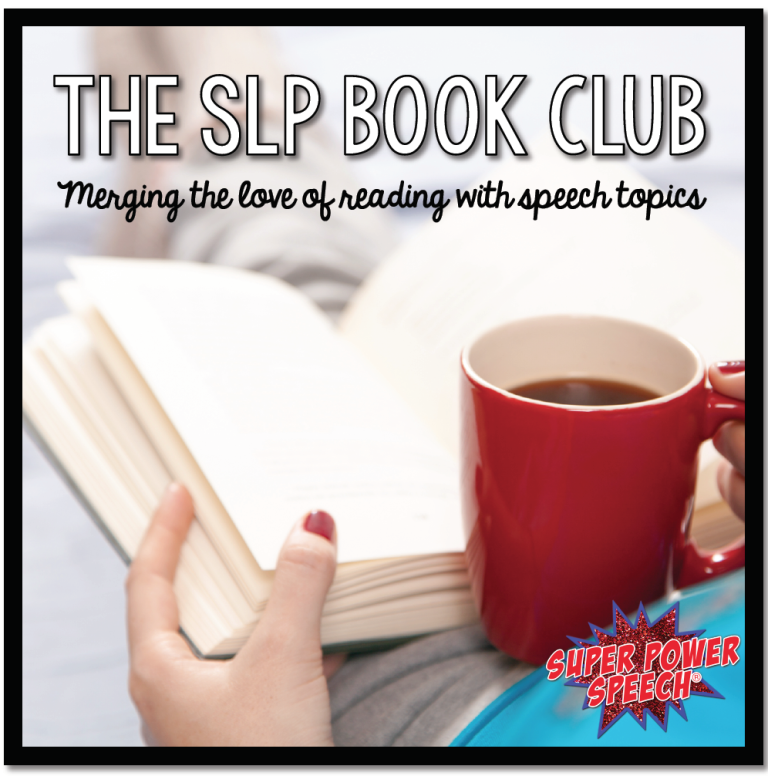SLP Book Club: Brain on Fire

Welcome to the SLP Book Club! This book club has been my dream and my baby as an SLP and a bibliophile. I am so excited to find others out there that want to explore new books with me and discuss them in the comfort of your jammies and slippers!
Now…Let’s get this book party started!
How to participate:
-
-
- Read my low-downs and questions.
- Answer the discussion questions.
- Add your own comments or questions.
-
Disclaimer: Amazon affiliate links included
I originally read this book because of my 11-year-old daughter’s recommendation. She needed to study the book for her Battle of the Books competition and I thought I would attempt to read along with her.
Brain on Fire
Author: Susannah Cahalan
Genre: Memoir
Summary: Susannah’s memoir of her rapid lapse into mental illness, search for answers, and recovery process will leave you in awe, horrified and certainly wondering if this could happen to you or a loved one.
Overall rating: 4/5
Quotes to ponder:
“Sometimes, Just when we need them, life wraps metaphors up in little bows for us. When you think all is lost, the things you need the most return unexpectedly.”
“To move forward, you have to leave the past behind.”
“Someone once asked, ‘If you could take it all back, would you?’ At the time I didn’t know. Now I do. I wouldn’t take that terrible experience back for anything in the world. Too much light has come out of my darkness.”
Questions (and my answers… please add your answers in the comments):
1 – In what ways did you feel connected to the author and her family?
Susannah’s perseverance to continue with her job, and live her “normal life” connected with me. Although she knew that something was wrong and was looking for answers, she did not want to be slowed down by a seemingly temporary condition. As someone who has a never-ending to-do list and is always on the go, I relate to her desire to just keep going. That is until she could no longer do so.
2 – What do you think about the idea that some children originally diagnosed with Autism, may, in fact, have an autoimmune disorder that could be treated?
My immediate reaction to this thought was that it was just another excuse that Autism is curable and a disease. When I considered it more, however, I thought that Autism is not just one thing. It is diagnosed through its symptoms. And if the symptoms of another condition are masking themselves as Autism, then maybe for some people, Autism is “curable”.
3 – What are your thoughts about the effects of the author’s article (saved lives, made doctor into a hero, etc.)?
Although I appreciate her article and book and know that it has been helpful to many, I found this ending section of the book more boastful than I typically find useful.
In the comments below, please answer the questions with your thoughts. I can’t wait to hear your thoughts about this book!







I enjoyed reading this book. It was easy to read and get into. I was very interested in the fact that autoimmune diseases can mask themselves as other disorders such as autism. It is highlights how much we rely on symptoms, not underling causes, when making diagnoses. I think that the article and book are a great way to highlight this lesser-known condition and all that the author had worked to regain.
Fascinating and terrifying book. The time period where she was gradually losing functions was unsettling. The period while doctors were trying to diagnose her problem was frustrating and terrifying I kept thinking about all the people that were shunted off to institutions without a proper diagnosis. Definitely, the need to dig into the cause of each person’s disorder, including autism, is essential (but how often does that happen, unless one has really good advocates and really curious persistent doctors and really good health insurance?) I also kept thinking about how vulnerable each of us is – knowing that each of us could easily be stricken by some life-altering event at any moment. .
Paranoia aside, the neurological basis of her altered state was fascinating. It made me revisit my knowledge, a little faded in spots, of anatomy and neurology.
I agree that the end part was a bit more self-glorifying than I would have liked….but at the same time, I suspect part of it was a reaction to having survived a nearly catastrophic health problem. And it is tempting to paint the doctors who FINALLY figure out (and take seriously) a medical issue as a hero.
Looking forward to the 2018 books!
I really need to get back on track with the Book Club! Adding this to my reading ist.
Glad I stumbled upon this! I would love to jump on the January Book Club Book. You better believe I subscribed!